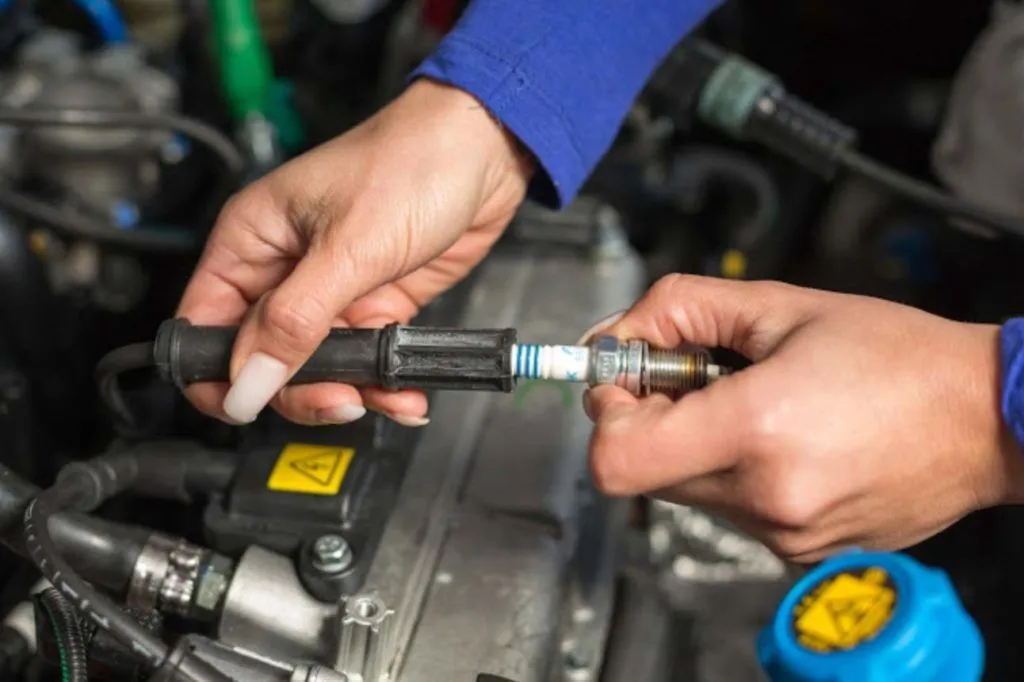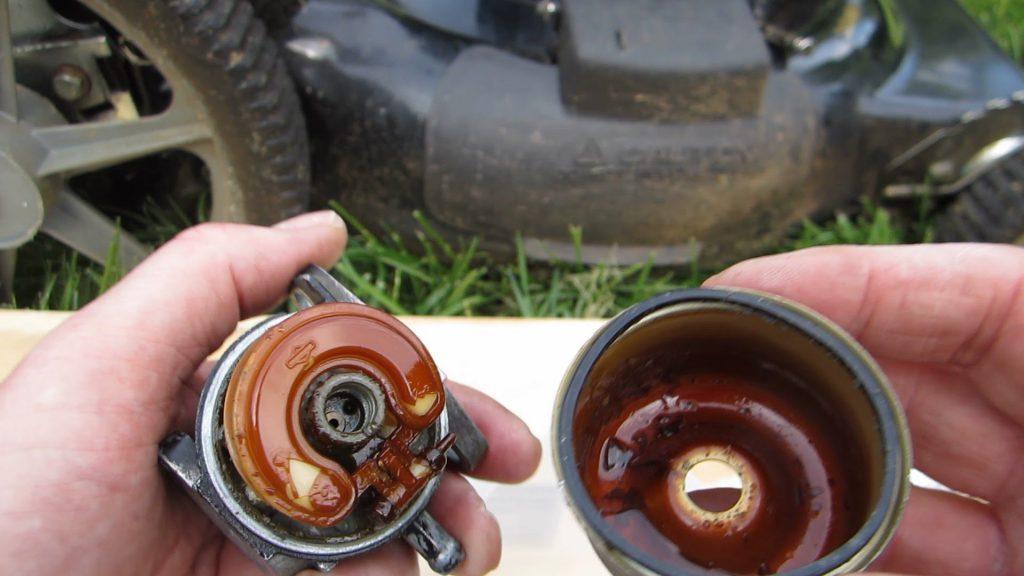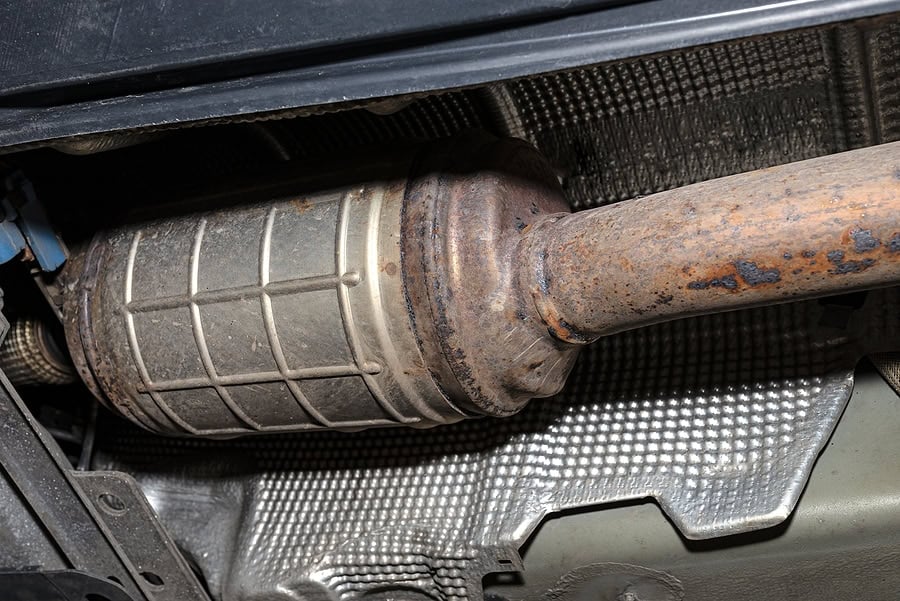If you’ve ever experienced your car jerking while accelerating, you know how unsettling it can be.
If your Jeep jerks when accelerating, it could be due to a failing fuel pump, faulty spark plugs, or transmission issues. Regular maintenance, such as changing spark plugs and checking the fuel system, can help fix the jerking.
In this guide, we’ll explore common reasons why your car jerks when accelerating and how you can fix it for a smoother ride.
Reasons Your Car Jerks While Accelerating
1. Dirty Fuel Injectors
Dirty fuel injectors don’t spray fuel properly, making your car jerk. Over time, dirt and debris can block them. Cleaning or replacing the injectors will help your engine get the fuel it needs for smooth acceleration.
2. Fuel Blockages
Fuel blockages can prevent fuel from flowing to the engine properly, causing jerking or hesitation when trying to accelerate. Clearing the blockage and checking the fuel system will ensure the engine gets the right amount of fuel.
3. Worn Out Spark Plugs

Worn-out spark plugs don’t ignite the fuel-air mixture well, causing your car to misfire and jerk when accelerating. Replacing old or dirty spark plugs will improve engine performance and eliminate jerking issues.
4. Dirty Air Filters
A dirty air filter blocks airflow to the engine, causing poor acceleration and jerking your car. Changing the air filter regularly will help your engine breathe better and improve smooth driving.
Also Read: Jeep 3.8 Oil Type – The Ultimate Guide to Engine Maintenance
5. Damaged Cylinders
Damaged cylinders affect how the engine generates power. If one or more cylinders are faulty, you may feel jerking while driving. Repairing or replacing damaged cylinders restores smooth acceleration and overall engine performance.
6. Blocked Catalytic Converters
A blocked catalytic converter creates backpressure in the engine, causing it to jerk during acceleration. This happens when the converter gets clogged with soot. Cleaning or replacing it will help the exhaust flow smoothly and improve performance.
7. Damaged Gas Lines
Damaged gas lines can cause fuel to leak or not reach the engine properly, leading to jerking during acceleration. Inspecting and replacing the gas lines will ensure your engine gets enough fuel to run smoothly.
8. Damaged Acceleration Cables
Damaged acceleration cables can cause inconsistent throttle response, making your car jerk when you press the gas pedal. Replacing the damaged cables will restore proper acceleration and eliminate jerking.
9. Defective Carburetors
A defective carburetor can cause improper air and fuel mixing, disrupting engine performance and leading to jerking during acceleration. Replacing or repairing the carburetor will ensure smooth fuel delivery and better acceleration.
10. Moisture On The Distributor Cap

Moisture on the distributor cap can cause engine misfires and jerking, especially in wet or cold weather. Water or condensation can interfere with the ignition system. Drying or replacing the cap will prevent jerking and improve engine function.
11. Faulty Spark Plugs
Faulty spark plugs can cause your engine to misfire, leading to jerking when you accelerate. Over time, they wear out and can’t ignite fuel properly. Replacing old spark plugs will help your car run smoothly and stop the jerking.
12. Ignition System Issues
Problems with the ignition system, such as bad coils or worn distributor caps, can cause jerking. If the spark doesn’t ignite fuel at the right time, your car will hesitate or jerk. Fixing the ignition system will restore smooth acceleration.
Read More: Jeep Wrangler Pulls To The Right When Braking – Guidance!
13. Clogged Air Filters
Clogged air filters block air from reaching the engine, affecting its performance. When airflow is restricted, your car can jerk during acceleration. Cleaning or replacing the air filter will improve airflow and ensure a smoother ride.
14. Fuel Pump Malfunction
A malfunctioning fuel pump can cause fuel to flow unevenly to the engine, resulting in jerking when accelerating. If the pump isn’t working right, your car may sputter. Replacing the fuel pump will ensure steady fuel flow for smooth acceleration.
15. Transmission Issues
- Transmission issues, like low fluid or internal damage, can cause jerking during gear shifts.
- Jerking may occur when your car struggles to accelerate smoothly due to transmission problems.
- Regular fluid checks and timely repairs will maintain transmission health and prevent jerking.
16. Mass Air Flow Sensor Failure
A failed mass air flow sensor can cause incorrect air-fuel mixtures, leading to jerking. This sensor measures air intake, and if it malfunctions, your engine may not get the right mix. Replacing the sensor will restore smooth acceleration.
17. Oxygen Sensor Malfunction
A malfunctioning oxygen sensor sends the wrong data to the engine, causing poor acceleration. It affects the fuel-air mixture, leading to jerking. Replacing a faulty oxygen sensor will help your car run better and prevent performance issues.
18. Throttle Position Sensor Issues
Throttle position sensor issues can cause jerking by sending the wrong signals to the engine. This affects how much fuel is injected during acceleration. Replacing the sensor ensures accurate fuel delivery and smooth acceleration without jerking.
19. Vacuum Leak
A vacuum leak can disrupt the air-fuel mixture, leading to jerking during acceleration and causing the engine to misfire. Sealing the leak will restore proper fuel combustion and eliminate jerking for a smoother drive.
20. Exhaust System Problems

- Exhaust system problems can cause jerking, especially when the catalytic converter is clogged.
- A clogged catalytic converter creates backpressure, affecting engine performance.
- The blockage interferes with proper exhaust flow, leading to jerking during acceleration.
- Fixing or replacing damaged exhaust components restores smooth exhaust flow.
- Ensuring proper exhaust flow prevents jerking and improves acceleration performance.
21. Worn-Out Clutch
For manual transmissions, a worn-out clutch can cause jerking when accelerating. The clutch may not engage properly, leading to hesitation. Replacing the clutch at the right time will restore smooth shifting and eliminate jerking.
22. EGR Valve Malfunction
A malfunctioning EGR valve affects engine performance and can cause jerking during acceleration. This valve recirculates exhaust gases to reduce emissions. Replacing or repairing the valve ensures smoother acceleration and better fuel efficiency.
23. Poor Quality Fuel
Using poor-quality fuel, which may contain impurities, can cause your engine to jerk. Low-quality fuel leads to poor combustion, which affects acceleration. Always use high-quality fuel to prevent jerking and ensure a smoother driving experience.
24. Engine Control Unit (ECU) Problems
Problems with the Engine Control Unit (ECU) can cause jerking. The ECU controls many engine functions, including acceleration. If it malfunctions, your car may hesitate or jerk. Fixing or resetting the ECU will restore smooth driving.
Must Read: Can Jeep Unlock My Car Remotely – Complete Guide Of 2024!
25. Dirty Or Clogged Fuel Injectors
Dirty or clogged fuel injectors don’t adequately supply fuel to the engine, causing jerking. If the fuel spray is blocked, it affects acceleration. Cleaning or replacing the injectors will ensure the engine gets the right amount of fuel.
Jeep Jerking When Accelerating Then Stops
If your Jeep jerks when accelerating and then stops, it could be due to a fuel system issue, like a clogged fuel injector or a faulty fuel pump. Getting your Jeep checked by a mechanic will help fix the problem.
Old Jeep Jerking When Accelerating
An old Jeep jerking when accelerating may have worn-out parts like spark plugs, fuel filters, or cables. Over time, components lose efficiency. Regular maintenance and timely replacements can restore smooth acceleration and stop the jerking in your older Jeep.
2016 Jeep Jerking When Accelerating
If your 2016 Jeep jerks when accelerating, the issue could be related to transmission problems, a dirty air filter, or a malfunctioning throttle position sensor. A mechanic can help diagnose and fix the problem to ensure your Jeep runs smoothly.
Car Jerks When Accelerating At Low Speeds
A dirty fuel injector, bad spark plugs, or clogged air filters can cause a car to jerk when accelerating at low speeds. These issues prevent the engine from getting proper fuel and air. Have it checked to fix the jerking?
Jeep Patriot Jerking When Accelerating
If your Jeep Patriot jerks when accelerating, it may be due to fuel pump failure, clogged air filters, or ignition system issues. Regular maintenance and replacing worn-out parts will help keep your Jeep Patriot running smoothly without jerking.
Jeep Wrangler Jerks When Accelerating
A Jeep Wrangler jerking when accelerating could be a sign of issues with fuel injectors, spark plugs, or the transmission system. Addressing these problems through repairs or replacements will restore your Jeep Wrangler’s smooth acceleration.
2016 Jeep Patriot Jerks When Accelerating
If your 2016 Jeep Patriot jerks when accelerating, the problem may involve a fuel system issue, a clogged air filter, or worn-out spark plugs. Having these components inspected and replaced as needed will eliminate jerking and improve acceleration.
FAQs
1. How Do You Fix A Car Jerking When Accelerating?
To fix jerking when accelerating, check the spark plugs, fuel injectors, and air filters. A mechanic can also diagnose and repair the issue.
2. What Does It Mean When My Car Jerks When I Push The Gas?
When your car jerks while accelerating, it could mean fuel system issues, worn spark plugs, or transmission problems.
3. Why Does My Transmission Jerk When Accelerating?
Low fluid levels, damaged gears, or a worn-out clutch may cause a jerking transmission. Regular fluid checks can help.
4. Is Car Jerking A Serious Problem?
Car jerking can be severe if not addressed, and it may indicate problems with the engine, transmission, or fuel system.
5. What Should I Do If My Transmission Is Jerking?
If your transmission jerks, have it checked by a mechanic. To prevent damage, it may need a fluid change or repairs.
6. Can Low Transmission Fluid Cause Jerking When Accelerating?
Yes, low transmission fluid can cause jerking by affecting gear shifting. Make sure to check fluid levels regularly.
7. Why Does My Car Jerk Right When I Accelerate?
Your car may jerk due to fuel issues, worn spark plugs, or transmission problems. Have it inspected to fix the problem?
8. Why Does My Transmission Shudder When Accelerating?
A shuddering transmission could indicate low fluid levels, worn-out parts, or internal transmission damage. A mechanic can inspect it.
9. Why Is My Car Juddering When Accelerating?
If your car is juddering while accelerating, it might be due to fuel system problems, clogged air filters, or transmission issues.
10. Can Changing Transmission Fluid Fix Jerking?
Changing transmission fluid can help with jerking, especially if low fluid levels or contamination are causing shifting problems.
Conclusion
In conclusion, Jeep jerking during acceleration can stem from issues like faulty spark plugs, a failing fuel pump, or transmission problems. Regular maintenance and timely repairs, such as replacing spark plugs and checking fuel systems, can help prevent jerking and ensure smooth driving.






0 Comments